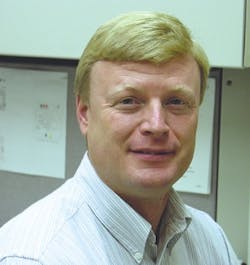Talk To Me (sidebar)
Fresh from completing a corporate-wide rollout of an SAP-supplied enterprise resource planning (ERP) system in 2004, Rohm and Haas Co., a Philadelphia-based specialty chemical maker, has not yet broadly linked its ERP system with its manufacturing systems.
But when the company does launch that effort starting in 2006, it will base the integration on the Instrumentation, Systems and Automation Society’s ISA-95 standard, says Dan Rozinski, MES project leader at the Rohm and Haas Corporate Engineering Center, in Bristol, Pa.
With 13 major businesses and more than 100 manufacturing sites globally, Rohm and Haas’ ability to use common, standards-based interfaces—as opposed to custom, point-to-point interfaces—will be key to cost-effective integration, Rozinski says.
Rohm and Haas relies on manufacturing systems from a variety of vendors, including Aspen Technology, Emerson Process Management and Honeywell. And Rozinski notes that part of his job involves “providing leadership and guidance” to these software providers in adopting the ISA-95 standard. “Where the rubber meets the road for us is how well our solution partners implement the standards, and how well they adhere to them, so that we’re able to take advantage of the economies that the standard provides,” he says. So far, SAP “is coming up to speed quickly” in its ISA-95 implementation, Rozinski observes. And on the manufacturing side, Aspen Technology, in particular, has been “one of the leaders,” he notes.
While Rohm and Haas won’t begin ISA-95-based strategic implementations until next year, the company has launched several pilot projects involving ERP-to-plant floor integration. And the early results show promise for dramatically improving the company’s business performance, Rozinski indicates. “We’re finding some positive impact on inventory, and a lot of impact on the productivity of our plants.”

